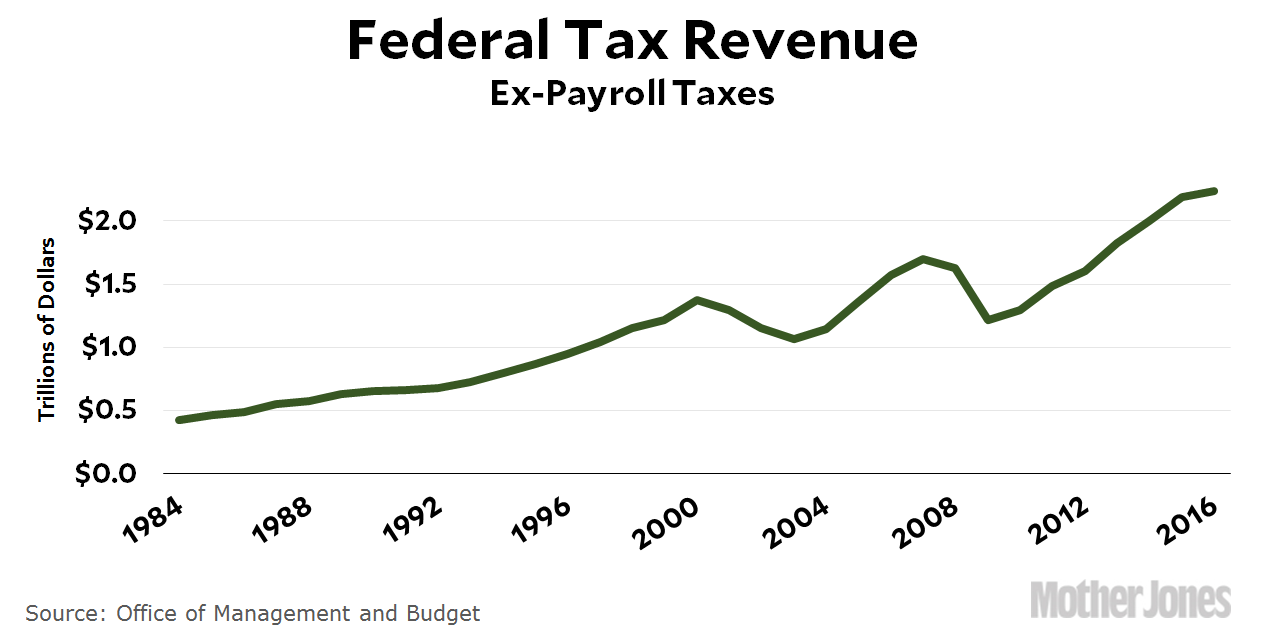Yesterday I made fun of President Trump for not understanding why his tax cut plan would be easier to pass after Obamacare had been repealed. But I have a confession: I don’t really understand it either. Jon Chait’s explanation is typical:
The connection between the two issues might seem obscure, but it matters technically. The Republican plan to repeal Obamacare would eliminate all the taxes that were raised to help pay for the benefits — about $1.2 trillion over the next decade. This would lower the baseline of tax revenue, meaning that Republicans would need to design a tax code that raises $1.2 trillion less in revenue in order to be “revenue-neutral.” That makes it crucial for them to repeal Obamacare before they cut taxes.
I’ve read a whole bunch of explanations of why Obamacare repeal needs to come before tax reform, and this is the gist of all of them: It lowers the revenue baseline.
Fine. Using round numbers, suppose the tax code brings in $20 trillion over ten years. Once you repeal Obamacare, it brings in $19 trillion, so your shiny new tax plan only has to raise $19 trillion. Simple enough.
But what if you leave Obamacare in place? Now your new tax plan needs to raise $20 trillion. But $1 trillion is still coming from Obamacare, so you have to raise only $19 trillion ex-Obamacare. It’s the same. I can’t think of a chart to illustrate this, so instead here’s one showing actual federal tax revenues aside from payroll taxes:

What am I missing here? The fact that all the explanations I’ve read vaguely invoke the phrase “revenue baseline” and then move on makes me suspicious. Is there something deeper going on here? It doesn’t make sense that eliminating a roughly equal amount of revenue and spending by repealing Obamacare would have any effect on the deficit calculations of a subsequent tax bill. Could some grizzled expert please explain this?


















